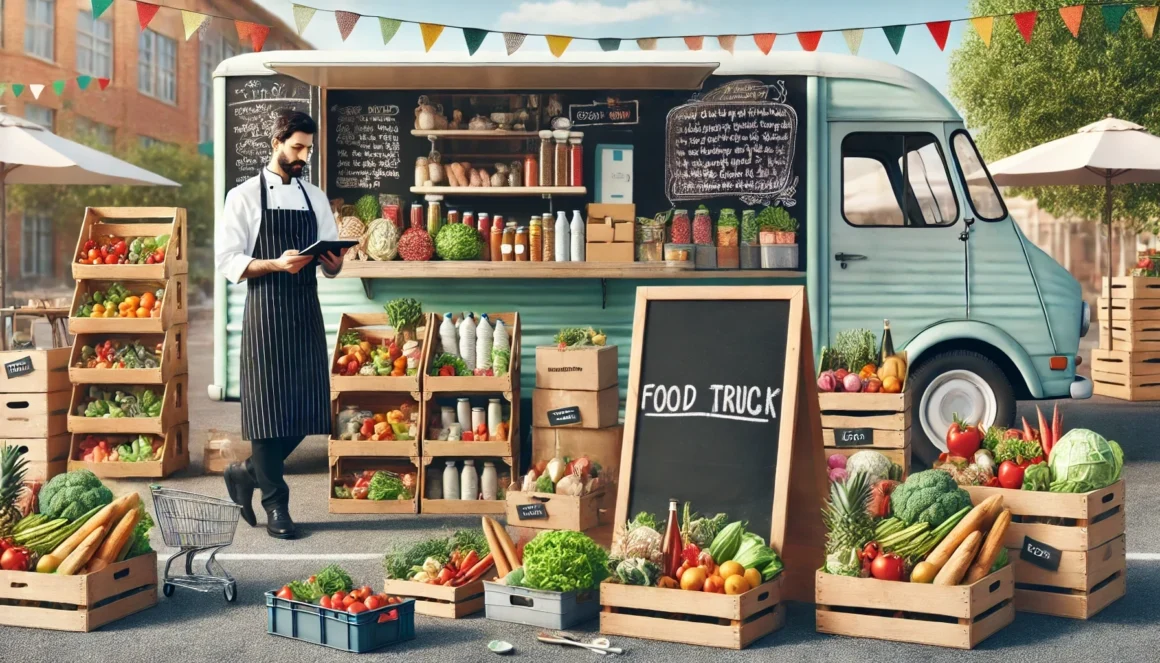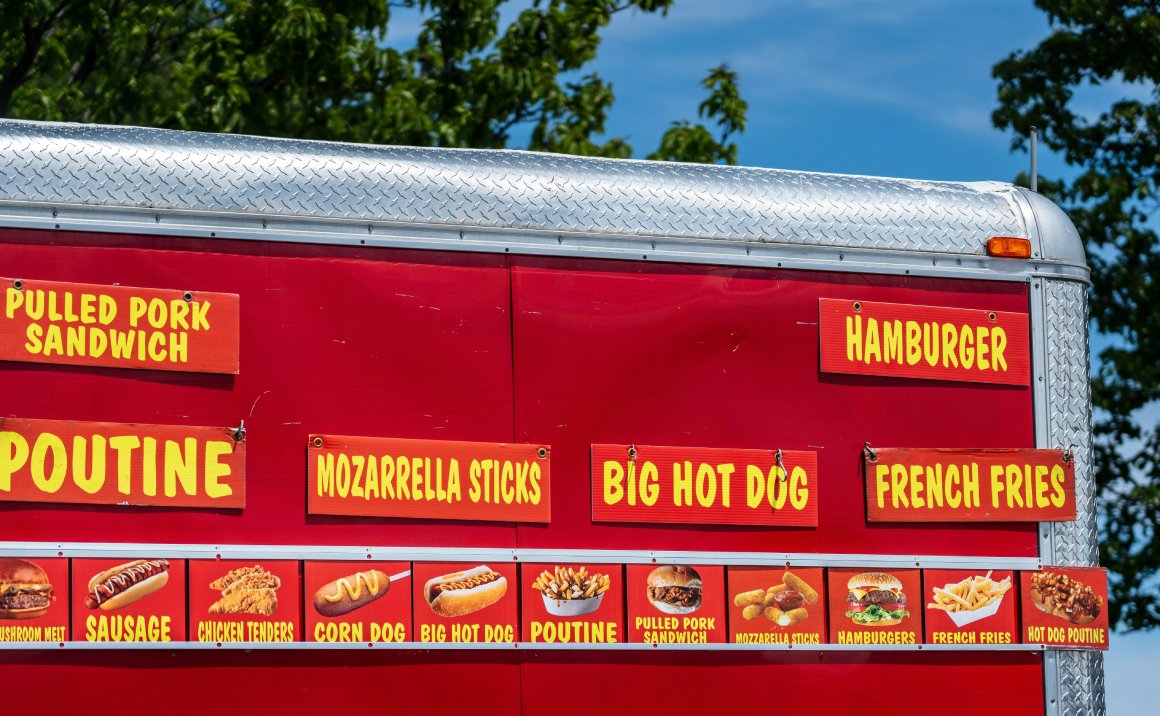
Your Food Truck Legal Checklist: Permits, Licenses, and Regulations You Need to Know
This post is part of a regular series. Click here to start at the beginning.
Before you can hit the road and start serving customers, you need to ensure that your food truck is fully compliant with local, state, and federal regulations. The food truck industry is subject to a range of legal requirements that vary by location, and understanding these is crucial to operating your truck smoothly. In this post, we’ll break down the essential permits, licenses, and inspections you’ll need to get your truck up and running, as well as some tips to navigate this process as efficiently as possible.
1. Why Food Truck Legal Compliance is Essential
The food truck industry is tightly regulated to ensure public health and safety. Whether you’re serving tacos, burgers, or smoothies, your truck will be inspected and monitored by local authorities to make sure you’re following health codes, safety regulations, and local business laws. Failure to comply can result in hefty fines, temporary closures, or even permanent shutdowns.
It’s essential to be proactive when dealing with regulations to avoid delays in launching your business. Many food truck owners underestimate how long it takes to secure permits and pass inspections, so getting a head start on this process is key.
Example: Sarah, the owner of a dessert truck, made the mistake of waiting until two weeks before her planned launch date to apply for permits. The process took longer than expected, delaying her opening by over a month. By starting early and preparing for inspections, you can avoid these delays.
2. Business Licenses and Permits: What You Need to Operate Legally
The first step to running a food truck is securing the proper business licenses and permits. These licenses vary depending on your location, so it’s important to research what your city, county, or state requires. While the exact requirements may differ, here are some of the most common licenses and permits you’ll need:
- Business License: Every food truck must have a business license to legally operate. This license allows you to conduct business within your city or state and ensures that you’re registered with local authorities.Example: In Austin, Texas, food truck owners must apply for a business license with the City of Austin before they can start serving customers. This process involves submitting an application and paying a small fee.
- Health Department Permit: Since you’ll be serving food, your truck must comply with health department regulations. This involves a health inspection where local health officials will evaluate your food handling, storage, and preparation practices. They’ll check to ensure that you’re maintaining proper food temperatures, hygiene standards, and sanitation practices.Example: A taco truck in Los Angeles must undergo a health department inspection to ensure all cooking equipment is clean, food is stored at safe temperatures, and staff follow proper food safety practices.
- Fire Department Permit: If your truck uses cooking equipment like fryers, grills, or stovetops, you’ll likely need a fire department inspection. Fire safety is crucial in mobile kitchens, and your truck may need a fire suppression system and fire extinguisher to pass the inspection.Example: A pizza truck with a propane-fueled oven was required to install a fire suppression system and keep a fire extinguisher on board before receiving a fire department permit in New York City.
- Parking Permit: Many cities require food trucks to apply for parking permits to operate in designated areas. These permits regulate where and when trucks can park, and some cities limit the number of trucks allowed in popular areas to control traffic and competition.Example: In San Francisco, food trucks must obtain parking permits for each neighborhood they plan to operate in. Without these permits, they risk getting fined or towed.
- Commissary Agreement: In some areas, food trucks must operate from a licensed commissary kitchen when not on the road. Commissary kitchens provide a place to prepare and store food, refill water tanks, and dispose of waste, ensuring your truck is compliant with health regulations.Example: A BBQ truck in Miami is required to use a licensed commissary for prep work, storage, and waste disposal when not on the road. This ensures the truck meets sanitation standards set by the local health department.
3. Food Truck Insurance: Protecting Your Business
Just like any other business, food trucks need insurance to protect against risks like accidents, property damage, or lawsuits. Depending on your location, certain types of insurance may be mandatory, while others are simply smart to have. Here are the main types of insurance to consider:
- General Liability Insurance: This covers claims related to bodily injury, property damage, and medical expenses if a customer gets hurt or property is damaged while interacting with your business.Example: A customer slips near your truck and injures themselves. General liability insurance helps cover medical expenses and protects your business from costly legal claims.
- Commercial Auto Insurance: Since your food truck is a vehicle, you’ll need commercial auto insurance. This covers accidents, theft, and damage to your truck while you’re on the road.Example: On the way to a local festival, a food truck owner accidentally rear-ends another car. Commercial auto insurance covers the damage to both vehicles, protecting the business from out-of-pocket expenses.
- Workers’ Compensation Insurance: If you plan to hire employees, workers’ compensation insurance is required in most states. It covers medical expenses and lost wages if an employee is injured on the job.Example: A cook working in your food truck burns themselves while frying food. Workers’ comp covers their medical bills and lost wages while they recover, protecting your business from a lawsuit.
- Product Liability Insurance: This insurance protects you if someone claims they got sick from eating your food. While proper food handling can minimize this risk, accidents can happen, and product liability insurance offers an extra layer of protection.Example: A customer claims they got food poisoning after eating at your truck. Product liability insurance covers legal fees and settlements, ensuring your business stays protected.
4. Health and Safety Inspections: What to Expect
Health and safety inspections are a critical part of the food truck business. Local health departments will regularly inspect your truck to ensure it meets sanitation and safety standards. These inspections are similar to those performed at brick-and-mortar restaurants, and they cover food storage, handling, cleanliness, and employee hygiene.
What Inspectors Look For:
- Food Storage: Inspectors will check that cold items are stored at the right temperature (usually below 40°F) and that hot foods are kept at safe serving temperatures (above 140°F). Improper storage can lead to bacteria growth and foodborne illness.Example: During a health inspection, a smoothie truck is checked to ensure that fruits are stored at the correct temperature to prevent spoilage and contamination.
- Sanitation Practices: Your truck must have proper handwashing stations, clean prep areas, and sanitized equipment. Inspectors will ensure your truck follows hygiene protocols to prevent cross-contamination and maintain cleanliness.Example: A sandwich truck is required to have a separate handwashing station with hot water and soap to ensure staff can wash their hands between handling raw ingredients and serving customers.
- Pest Control: Food trucks must have measures in place to prevent pests like flies, ants, or rodents from contaminating food. Proper waste disposal and keeping food covered are crucial practices.Example: A taco truck uses tightly sealed containers for all ingredients and has a waste disposal system that keeps trash sealed to prevent attracting pests.
- Employee Hygiene: All employees working on your food truck must follow strict hygiene standards, including wearing gloves, hairnets, and clean uniforms. Inspectors will check that your staff is following these protocols.Example: A crepe truck ensures all staff wear gloves when handling food and change them regularly to avoid cross-contamination between handling raw and cooked ingredients.
5. Local Zoning Laws and Event Regulations
Food trucks often face local zoning laws that regulate where they can park and serve customers. Some cities have designated areas for food trucks, while others allow trucks to operate freely with the proper permits. You’ll also need to follow specific regulations when participating in festivals, farmers’ markets, or private events.
- Zoning Laws: Research your city’s zoning laws to find out where food trucks are allowed to operate. Some cities restrict food trucks from parking near brick-and-mortar restaurants, while others limit trucks to specific areas like food truck parks or designated streets.Example: In Portland, food trucks can park in designated food pods, which are clusters of trucks that serve different cuisines in one area. This keeps trucks from competing directly with local restaurants.
- Event Regulations: If you plan to serve food at festivals, fairs, or farmers’ markets, you’ll need to apply for permits for each event. These permits ensure you comply with health and safety regulations specific to large gatherings.Example: A BBQ truck applies for a temporary permit to serve food at a local music festival. The permit ensures the truck complies with event-specific safety and sanitation rules.
Conclusion: Navigating the Legal Landscape for Your Food Truck
Navigating the legal and regulatory requirements of starting a food truck can seem overwhelming, but it’s a crucial part of building a successful business. By understanding and following these regulations, you can avoid costly fines, protect your business with insurance, and ensure the safety of your customers. Start early, do your research, and make sure you have all the necessary licenses and permits in place before hitting the road.
In our next post, we’ll dive into marketing strategies for promoting your food truck and building a loyal customer base. Stay tuned for more insights!
This post is part of a regular series. Please use these links to view the rest of the series in order.
Marketing Your Food Truck’s Grand Opening to Create Buzz
How to Plan a Grand Opening That Gets People Talking About Your Food Truck The…
How to Manage Food Waste – Effective Inventory Management
Inventory Management to Minimize Food Waste: A Chef’s Approach to Maximizing Efficiency Managing inventory is…
Cash App – A Simple and Convenient Payment Option for Food Trucks
Is Cash App a Good Payment Processor for Your Food Truck? In the world of…




